Greetings Rare Ones,
To new readers this is the Rare Birds Emerging Market Podcast Newsletter. Each week I send out this long form newsletter to listeners as I profile early stage entrepreneurs, ecosystem builders and investors from across emerging markets. Before we begin, don’t forget to subscribe and share this newsletter with your friends.
“Culture does not make people, people make culture.”1
When Gustavo exclaimed, “ I am going to create a cultural revolution that is interested in hackathons and startup weekends,” he was very intentional. The role of culture in creating an entrepreneurial ecosystem is not to be underestimated.
Let’s go through a series of Essential BIG Questions together so we can collectively understand the role of culture in encouraging entrepreneurship. First, we begin by watching Gustavo’s rousing speech in his TEDxYouth@KC talk.
👇Have a Watch 👇
Source: TEDxYouth@KC
🌱 Essential BIG Question: What is culture?
“Culture eats strategy for breakfast.” 2
Peter Drucker’s words ring true in a multitude of ways. Unfortunately, some things can’t be automated, strategised or defined through a narrow prism for analysis. People are complex, complicated and fickle. Culture is much bigger than language, food and customs it is a mindset which controls behaviour and ultimately how we live our lives. We all don’t value the same things. We all don’t see the world in the same way. Therefore, when trying to change anything, we must first begin with culture. Like Gustavo declared, it requires a cultural revolution. Below, you will see how values are ranked across regions around the world. Have a glance below and draw some conclusions of your own.
👇Have a Glance 👇
Source: Visual Capitalist
Although there are some consistent universal values such as family, community and loyalty, overall there is much variation. Americans value freedom of speech, the rest of the world, perhaps not as much. There appears to be many similarities between Africa and South America, specifically around community, loyalty, tradition and respect. Throughout Asia, social standing was consistently highly valued. As we can see, there are nuances even within a region. Therefore, understanding culture is a necessary precursor to affecting any change in a society. A lack of entrepreneurial activity in emerging markets goes much further than impacting economies. This is because the impact trickles down to the lives of everyday people. If the spirit of entrepreneurship is nonexistent and there are no success stories to complement the spirit how does one then successfully build a culture of entrepreneurship?
🌱 Essential BIG Question: What are the key ingredients required for building an entrepreneurial ecosystem?
Ideally we need the following (this list is not exhaustive):
⚫️Policy
⚫️Finance
⚫️Markets
⚫️Human Capital
⚫️Support
⚫️Culture
Thinking Point
What if we promoted entrepreneurial education? Many universities over the years have started including entrepreneurship in their curriculum. Babson College in the United States (where Gustavo attended university) is considered the world’s #1 university for entrepreneurship. In emerging markets this isn’t so popular and generally building a culture of entrepreneurship remains a significant challenge. Listeners of the podcast know that this is a consistent theme amongst guest who often share that they held back from pursuing entrepreneurial ventures because it was not seen as an acceptable career choice by their parents and society.
Where I live in China, up until recently, entrepreneurs were viewed as people who failed at having a ‘real career’. This has obviously changed and continues to change as entrepreneurship now attracts some of the brightest minds in the country. Success stories (along with a host of other factors) have also been a significant part of the change in mindset.
🌱 Essential BIG Question: Why do we need success stories?
Stripes acquisition of Paystack in Nigeria wasn’t just a success for its founders or the ecosystem. It was a message to those traditionalists who, unfortunately don’t believe that such successes’ are real or possible until they are validated by large organisations such as Stripe and more so foreigners. I do not say this to imply that the acquisition was not a massively great feat, it absolutely was but my point is: there are those who need those types of “wins” in order to believe. There is a reason why Angel networks are hard to come by in emerging markets ( I will touch on this in my next newsletter). Many of the elite in these countries invest in traditional industries such as real estate or simply take their money outside the country.
This mindset is persistent throughout many countries in emerging markets. Stripe was also an encouragement for the many who are still trying to convince their parents, spouses and friends that what they are building matters. Stable jobs and higher education are still viewed as the paths to guaranteed success. Many emerging market countries have legacy policies which hinder progress and are often prioritised over all else.
Thinking Point
Vision over legacy, of course, but what if the vision includes Silicon Valley? How many times have we heard or seen the following:
⚫️ The Next Silicon Valley
⚫️ Silicon Valleys Around the World
⚫️ The Silicon Valley of…
Slowly we are starting to see more of the following:
⚫️ Beyond Silicon Valley
I have seen many threads on the interwebs with discussions on how emerging market countries can build their own valley. My question is: Why should Lagos, Sao Paulo, Bengaluru, Shenzhen etc ad nauseum build Silicon Valley? We all admire and love the valley but should it go beyond that?
Silicon Valley
Dr Daniel Isenberg, Professor of Entrepreneurship Practice at Babson College Executive Education and Founder of the Babson Entrepreneurship Ecosystem Project has discussed in the past, how many governments in developing countries across the world have been spending massively on investments which they believe will foster technology based entrepreneurship, mostly in an attempt to replicate Silicon Valley. He asserts this is problematic not only because it takes a long time to create such an ecosystem but also because there can only be one Silicon Valley. The Valley was created under unique circumstances, which many emerging markets do not have the resources to replicate (I will go deeper into this in my next newsletter). Moreover, the culture of Silicon Valley is unique to its values, so how can it be possible for San Juan or Kuala Lumpur to replicate those values? Why not capitalise on what you have within your arsenal. We are after all best at being us! Silicon Valley is already taken.
Beyond Silicon Valley by Venture Capitalist and Professor Michael Goldberg and Beyond the Valley: How Innovators around the World are Overcoming Inequality and Creating the Technologies of Tomorrow by Ramesh Srinivasan are two books I highly recommend for those who are ready to explore this idea further. You are also welcome to listen into the Rare Birds Emerging Market Podcast Episode 49 whereby my guest Michael Goldberg (aforementioned) discussed the same.
🌱 Essential BIG Question: How do we change mindsets?
Incremental changes eventually lead to big shifts. That said, understanding the role plays in the future, helps out chart a course from the present. Beginning with the end in mind, I’d like you to have another watch, which was extracted from Jacob Morgan’s book, The Future Leader. Based on his research with over 140 CEOs, below he shares what it will take to be a leader in the next 10 years.
👇Have a Glance 👇
Source: Jacob Morgan-The Future of Work
How do we drive change when the culture sees no benefit? Change is hard and most resist, but it is important to remember that culture can do two things:
⚫️ Localise
⚫️ Adapt
At age 18 Gustavo spearheaded a large initiative which involved mobilising the first youth-led non-profit organization for aspiring entrepreneurs in Puerto Rico. He worked with government, gaining the support of three agencies (#thosewhohavedoneitknowit is a mammoth of a task). Challenges? Immense! But as he stated in is TedxYouth@KC talk his intention was to drive change.
Final Thoughts
At the beginning of our conversation Gustavo shared with me how his Jesuit education shaped the man he is today. His values were firmly grounded in service, which began at school. Our values begin at home, but then they are reaffirmed or challenged at school. This extends to our friends and other networks. Children spend a majority of their time in school. I often share the story of Ishmail and Jakob, two students living in a developing country.
⚫️ Jakob attends school daily. He is told that his future rests in acquiring an education. He scores well on all the exams. He receives high marks each time and is celebrated for being bright and clever. He consistently works hard to become what is expected: doctor, solicitor, accountant, or engineer. He is rewarded and validated for being a good student and is told that his future is secure.
⚫️ Ishmail attends school daily. He is often bored but is filled with big ideas. He is not a star student, spends most of his days tinkering, day dreaming and as his teachers say, “Highly disengaged.” His parents are often told, “He could be better if he only worked harder.” He moderately passes his exams. He is often chastised for not applying himself.
I usually share this story to stress the importance of catering to the uniqueness which exists amongst learners but also to stress the point that educational systems are outdated.
Gustavo attended a school where he was taught to value service and as a result he defined success as doing what was right for his community. At age 25 he has achieved many ‘firsts’ and has devoted his entire career and life to service. In building an entrepreneurial culture what do we need to do ensure that Jakob, Ishmail and Gustavo can thrive equally in their unique ways to contribute to their societies? Ultimately, many will be needed to inspire the next generation of entrepreneurial leaders with an entrepreneurial spirit!
Gustavo and I covered quite a bit in our conversation:
EPISODE HIGHLIGHTS
Get to Know Gustavo
The Influence of the Jesuit Missions
Founding a Youth Organisation at Age 18
Encouraging Youth Mobilisation
The Experience of Attending Babson University
Mindset for Entrepreneurs
Building Community Focussed Projects
The Coffee Scrub
Let’s Go Hustle: Online Course for Entrepreneurs
Click Funnels-A Marketing Company
Island Relief Team-Post Hurricane Maria
Puerto Rico’s First co-living Space Team House PR
Recalling the Devastation of Hurricane Maria
Building Based
Understanding the Problem Based is Solving
Lessons Learned
Take Pause
More blockchain technology and entrepreneurship emerging markets news, content, podcasts and analysis can be found via Rare Birds.
As always, thanks for reading and for more exchanges, questions and ideas message me via joann@rarebirdshq.com
Bye for now.
JoXx
Chimamanda Ngozi Adichie
Peter Drucker









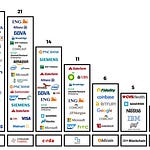
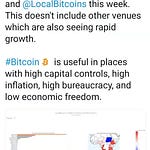

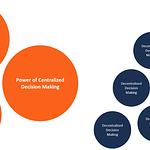

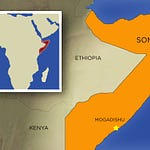
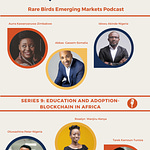
#174 Encouraging Entrepreneurship. Exploring the Puerto Rico Startup Ecosystem